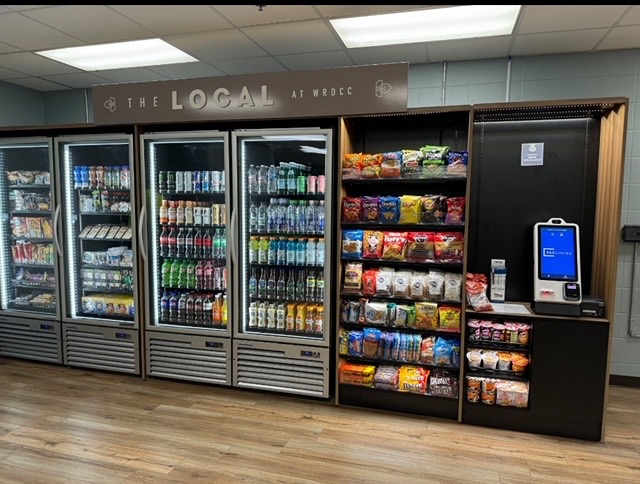In recent years, a notable shift has been underway in the corporate snacking landscape. Traditional vending machines, once ubiquitous in office breakrooms, are gradually being supplanted by a more modern alternative: micro markets. This shift reflects a broader trend towards customizable, convenient, and healthier snack options in the workplace which is transforming business snacking. Let’s delve into why micro markets are gaining traction and why they are becoming the preferred choice for businesses over traditional vending machines. 

1. Enhanced Variety and Customization: Unlike vending machines limited by physical space and mechanics, micro markets offer a broader selection of snacks, beverages, and even fresh food items. Employees can choose from an array of options, including healthier choices such as fresh fruits, salads, and protein bars. This variety caters to diverse dietary preferences and restrictions, fostering a more inclusive snacking environment.
2. Convenience and Accessibility: Micro markets operate on a self-service basis, providing employees with 24/7 access to snacks and refreshments. Unlike vending machines that may have limited operating hours or face technical issues, micro markets offer uninterrupted service, accommodating varying schedules and preferences. Additionally, the open layout of micro markets allows for easier browsing and selection, enhancing the overall snacking experience.
3. Technology Integration: Leveraging advancements in technology, micro markets incorporate features such as touchscreen interfaces, cashless payment systems, and inventory tracking software. These innovations streamline transactions, improve operational efficiency, and provide valuable data insights for businesses. With real-time inventory monitoring, operators can promptly restock popular items and adjust offerings based on employee preferences.

4. Wellness and Employee Satisfaction: The shift towards healthier snacking options reflects a growing emphasis on employee wellness and engagement in the workplace. By offering nutritious choices within easy reach, micro markets support wellness initiatives and promote healthier eating habits among employees. This, in turn, can lead to increased productivity, morale, and overall satisfaction within the workforce.
5. Community and Collaboration: Micro markets serve as communal spaces where employees can gather, socialize, and collaborate outside of formal work settings. Unlike the solitary experience of using a vending machine, the open layout and inviting atmosphere of micro markets encourage interaction and connection among colleagues. This fosters a sense of camaraderie and strengthens workplace relationships, contributing to a positive company culture.

6. Environmental Sustainability: As businesses prioritize sustainability initiatives, micro markets offer a more eco-friendly alternative to traditional vending machines. By reducing single-use packaging and promoting bulk purchases, micro markets help minimize waste generation and carbon footprint. Additionally, operators can implement eco-friendly practices such as compostable packaging and energy-efficient appliances, further reducing environmental impact.
In conclusion, the transition from traditional vending machines to micro markets represents a paradigm shift in transforming business snacking culture. With their enhanced variety, convenience, technology integration, focus on wellness, community-building potential, and sustainability benefits, micro markets are reshaping the way businesses approach employee refreshment services. As organizations prioritize employee well-being, engagement, and sustainability, micro markets emerge as a compelling solution to meet the evolving needs of the modern workplace.
